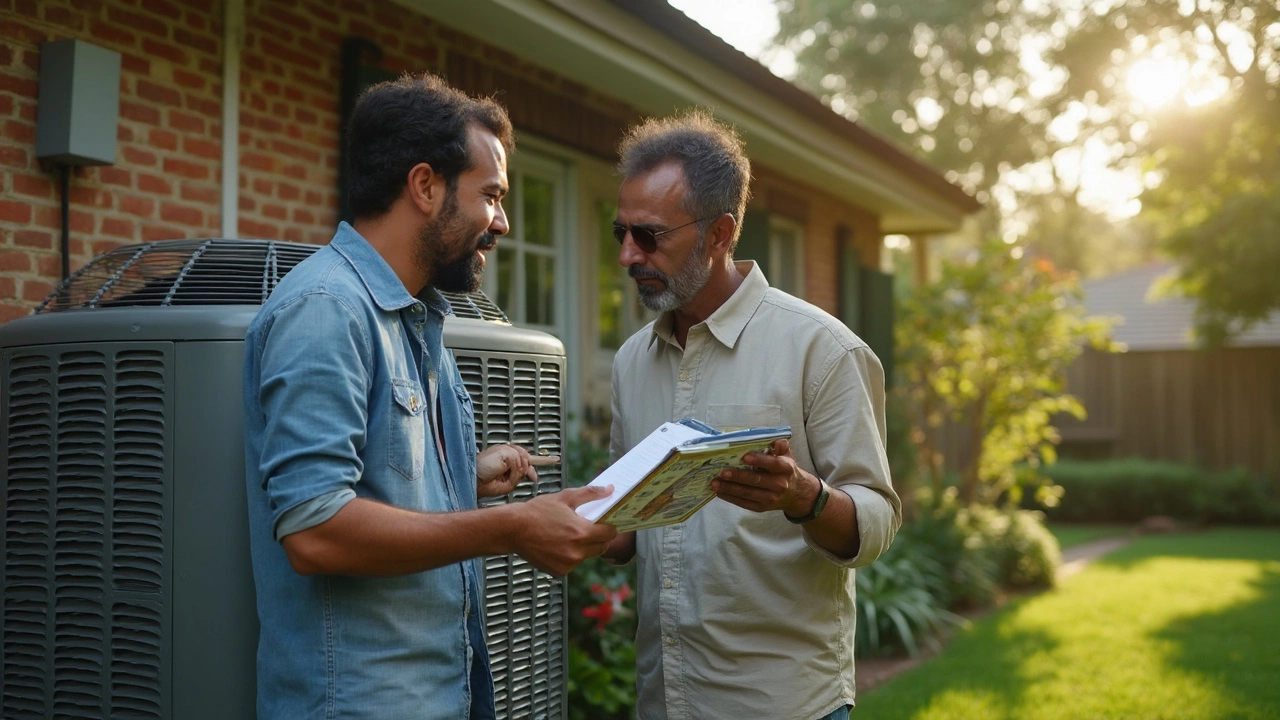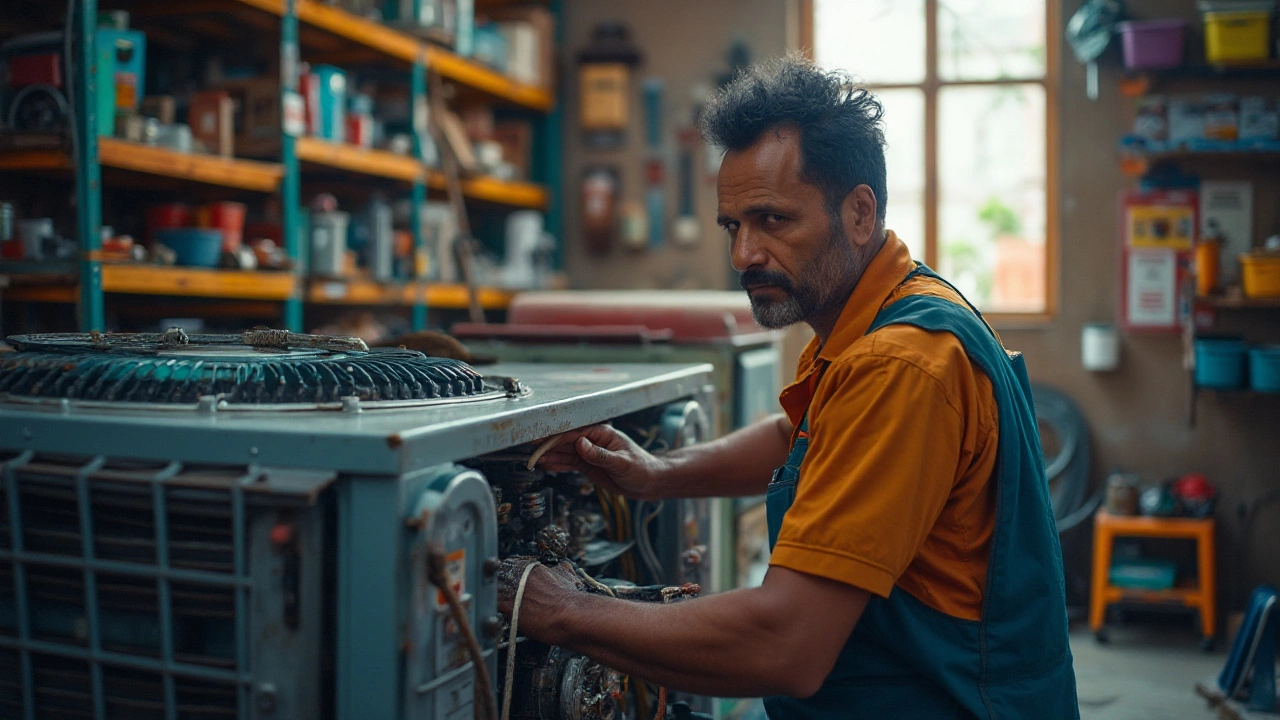Wondering if it's time to replace your heat pump? Learn the most common signs, key lifespan facts, and how to make the best call for your home comfort.
Heat Pump Repair: Quick Fixes & When to Call a Pro
If your heat pump stopped blowing warm air or makes weird noises, you don’t have to panic. Most problems are easy to spot and fix with a few tools and a bit of patience. Below you’ll find the most common issues, how to troubleshoot them, and the tell‑tale signs that it’s time to dial in a professional.
Common problems you can spot yourself
1. No heat or cold air – First, check the thermostat. Make sure it’s set to “heat” and the temperature is higher than the room. If the settings look fine, look at the outdoor unit. A blocked fan or a layer of dirt can stop airflow. Turn off the power, clear any debris, and give the fan a gentle wipe with a soft brush.
2. Strange noises – Rattling usually means something is loose, like a fan blade or a panel. Hissing can point to a refrigerant leak, while a high‑pitched squeal often means a worn‑out motor belt. Tighten any loose screws you see, but don’t try to repair a refrigerant line yourself – that needs a certified tech.
3. Ice buildup on the coil – If you see ice forming on the outdoor coil, the airflow is probably blocked or the defrost cycle isn’t working. Switch off the unit, let the ice melt, then clean the filter and check the fan. A dirty filter reduces airflow and forces the system to work harder, which can cause ice.
4. Leaking water – A drip from the indoor unit often means the condensate drain is clogged. Locate the drain line (usually a PVC pipe), pop off the cap and pour a cup of hot water through it. If the water flows freely, you’re good. If it backs up, you may need a longer cleaning brush.
5. High energy bills – When the unit runs constantly without reaching the set temperature, the refrigerant level might be low or the compressor could be failing. Check that all doors and windows are sealed and that there’s no obvious obstruction around the unit. If the problem persists, it’s a sign the internal components need a pro’s look.
How to decide if you need a professional
Even if you feel comfortable handling filters and cleaning coils, some fixes are best left to trained technicians. Here’s a quick rule‑of‑thumb:
- Refrigerant issues – If you suspect a leak or the unit isn’t cooling at all, stop. Handling refrigerant requires certification.
- Electrical problems – Sparks, tripped breakers, or any burnt smells mean there’s an electrical fault. Turn off the power and call a pro.
- Compressor failures – A humming compressor that never kicks on usually needs a replacement part.
- Persistent ice – If ice returns after you clean the coil, the defrost timer or sensor may be broken.
When you call a heat pump service, ask for a written estimate and confirm the tech is licensed for HVAC work in Mumbai. A reputable shop will explain the problem, show you the faulty part, and give you options before starting any repair.
Keeping up with regular maintenance—filter changes every 1‑2 months, seasonal coil cleaning, and a yearly professional check—can stop most breakdowns before they happen. A little routine effort saves you time, money, and a cold night.
So, next time your heat pump acts up, run through these quick checks first. If the issue is beyond a simple clean‑up or filter swap, give a trusted technician a call. Your home will stay cozy, and you’ll avoid a costly emergency repair later.
Ever wondered if you can repair a heat pump on your own? This guide breaks down the real-life steps, from spotting early warning signs to deciding when to call a pro. You'll get practical tips and discover which repairs truly save money versus those that could cost more if you get them wrong. Get clear, no-nonsense advice to keep your heat pump running and your home comfortable.
Heat pumps are efficient but can hit you with unexpected repair costs. This article explores typical repair expenses, common issues, and what to expect when these systems fail. By understanding these factors, you'll be better prepared to handle potential problems and maybe even save some money.
Heat pumps can face various issues that cause them to malfunction or break down over time. Understanding these common problems helps in better diagnosing and fixing issues promptly. From electrical malfunctions to refrigerant leaks, knowing the potential culprits can save time and money. Regular maintenance and early detection of issues play a crucial role in extending the life of your heat pump. Learn how to tackle these problems effectively to ensure your heat pump operates smoothly.



